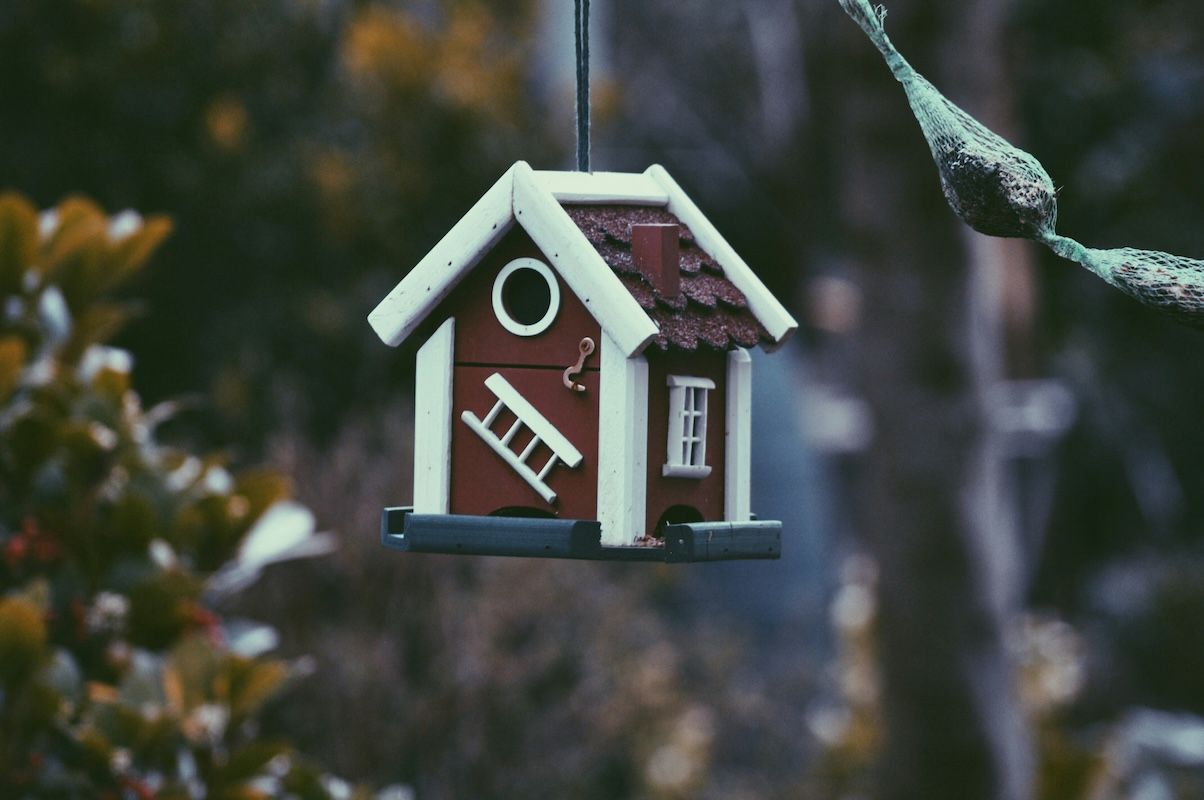Can You Sell a House with Code Violations?
When building or renovating a home, the work needs to meet certain standards, commonly called building codes. Building codes govern construction and ensure safety, health, and overall compliance.
Because building codes are dynamic, they can change over time, leading to code violations you didn’t initially expect. A house with code violations can present challenges but doesn’t render the property unsellable. Instead, it opens up different considerations and strategies for homeowners.
Common types of code violations include issues related to electrical wiring, plumbing, structural integrity, and zoning laws. Each violation carries its implications, influencing the property’s marketability and the steps necessary to achieve a successful sale.
Selling a house with code violations is possible and can be a smooth and successful transaction. By addressing or clearly disclosing the issues, homeowners can turn potential setbacks into opportunities, ensuring a favorable outcome.
What Are Code Violations?
Code violations occur when some aspect of a home fails to meet the required building, housing, zoning, safety, or health standards and local codes for its area.
Each city and municipality adopts a set of residential building codes, one of the most widely adopted being the International Residential Code (IRC). The IRC covers minimum standards for things like room sizes, fire safety, electrical, plumbing, etc.
Beyond the IRC, local municipalities can add even more specific codes focused on protecting public health and safety in that region. For specialized building sectors, there are national codes like the National Electrical Code (NEC), which establishes standards for electrical work. Additionally, homeowners associations may add codes aimed at preserving property values in their neighborhoods.
With codes frequently being updated as technology improves, it’s unlikely that older homes will stay updated to current standards. For example, the NEC is revised every three years, so electrical work that was compliant just a few years ago may now be considered a code violation. As homes age or are renovated, code violations can occur.
For example, a property owner who enjoys a DIY project can unknowingly make home “improvements” that do not meet building code requirements. Each local jurisdiction has its modifications to the codes. A home in one city may pass inspection, while just across the border in the next county over, the same home may have code violations due to stricter regional codes.
Some common examples of building code violations include:
- Electrical issues like outdated wiring, overloaded electrical panels, or lack of GFCI outlets in kitchens/bathrooms.
- Plumbing problems include leaky pipes, low water pressure, and the use of outdated materials like polybutylene piping.
- Structural faults like cracks in foundations or walls, improper roofing materials, or inadequate support beams.
- Zoning non-compliance includes illegal conversions of garages or basements into accessory dwelling units (ADUs), exceeding the allowed occupancy, or running a business out of a residential area.
- Missing proper permits for renovations, additions, or new construction done on the property, even when done in alignment with code requirements.
Code violations can be minor to major, but they can become a bigger problem when it is time to sell your house. Many buyers will want code violations fixed before a sale is finalized.
Can You Sell a House with Code Violations?
The short answer is yes; selling a house with active code violations is possible. However, there are steps to take to ensure a smooth sales process.
Code violations don’t automatically make a property unsellable. Many potential buyers, such as investors, builders, and buyers looking for a fixer-upper at a good price, won’t be deterred by fixable code issues.
That said, multiple code violations can impact three key parts of the sales process: property value, financing, and disclosures. Depending on the severity of the code violation, you have to sell at below-market value based on comparable properties.
What sellers often overlook is how code issues impact buyer financing. Buyers may have difficulty securing financing on a home with significant code violations, such as an illegal kitchen or rental unit.
Sellers must fully disclose any known code violations. If you try to withhold knowledge of code issues, you could leave yourself vulnerable to future litigation.
The best approach is to be upfront and transparent about the violations from the start. Consult with a real estate agent experienced in selling these types of properties. They can provide expert guidance on pricing, marketing strategies, and negotiating sales terms.
While selling a house with code violations takes extra effort and planning, it’s achievable with the right approach. With a knowledgeable agent and willingness to repair, disclose, and negotiate, you can successfully minimize headaches and complete the sale. The outcome may not be perfect, but it can be reasonable for both parties.
Not All Code Violations Have to be Addressed: Grandfathered-In Code Violations
The difference between a code violation and a code violation that is “grandfathered in” lies in the timing and applicability of building codes.
A code violation occurs when a property fails to meet current building, safety, health, or zoning standards. If the property does not comply with the regulations in place at the time of inspection or sale, it can result in fines, required repairs, or other penalties.
In contrast, a grandfathered code violation refers to a situation where a property does not meet current standards but is exempt from compliance because it was built before the current regulations were established. This means the property was compliant with the codes at the time of its construction, and the newer codes do not apply retroactively. An example of a grandfathered code violation would be a home with old windows that don’t meet today’s insulation standards or a home with original outdated electrical systems.
While grandfathered code violations don’t necessarily need to be fixed, certain events can trigger them having to be addressed. For example, if major renovations are made, the entire property might need to be updated to meet current codes.
For example, a home built before new electrical wiring standards were introduced might have wiring that doesn’t comply with today’s codes. If no significant changes are made to the electrical system, the property may remain legally “grandfathered.” However, any new electrical work would need to meet current standards
Steps to Sell a House with Code Violations
Selling a home with active code violations takes strategic planning and preparation. While it presents challenges, several steps can help streamline the process.
Identify and Understand the Violations
The first key step is to fully identify and understand the specific code violations affecting your property. Most homeowners are unaware of code violations, and homes are often sold with elements not up to code. However, if you are aware of major code violations, they should be documented. Contact your local code enforcement office to obtain documentation on all existing violations cited for the home.
If feasible, consult with a qualified home inspector to get a professional assessment of any defective conditions and how they deviate from the code. They can also provide repair cost estimates.
Consult with a Real Estate Agent
Work with an experienced real estate agent specializing in selling homes with potential code violations. They can guide you through the unique challenges and provide strategic advice on pricing, making repairs versus selling as-is, marketing to attract motivated buyers, negotiating sales terms, and ensuring proper legal disclosures.
Decide Whether to Fix the Violations or Sell As-Is
Work with an experienced real estate agent specializing in selling homes with potential code violations. They can guide you through the unique challenges and provide strategic advice on pricing, making repairs versus selling as-is, marketing to attract motivated buyers, negotiating sales terms, and ensuring proper legal disclosures.
Remember, just because your house had building code issues doesn’t necessarily mean that they need to be fixed or that the price needs to be lowered for a successful sale. Talk to your agent about market conditions and the best sale strategy.
Don’t have an agent yet? Connect with top real estate professionals in your area with FastExpert.
Obtain Necessary Permits and Make Repairs (If Fixing)
If opting to fix violations before selling, work with the city to obtain all necessary permits. Hire licensed contractors to make repairs according to code. This upfront investment will likely maximize your home’s list price. Keep all receipts and records to show buyers the work was done properly.
Price the Property Appropriately
Your agent will find comparable sales to help price the home, considering the violations, estimated repair costs, and comparable properties. Price it competitively but avoid overpricing, which can deter buyers. In a hot market, minor code violations could have minimal impact on the property’s sale prospects. In a cooler market or if there are major code violations, be prepared to negotiate on lower offers, accounting for violation fixes.
Market the Property
Develop marketing materials that frame the home positively, play up its potential, and attract targeted buyers. Highlight opportunities like adding value through renovations. Conduct open houses to generate interest. Your agent’s network and online listings will widen the buyer pool.
Disclose the Violations to Potential Buyers
If you are aware of code violations, then transparency is the best policy. Legally disclose all major or minor code violations upfront to avoid issues down the road. Provide inspectors’ reports and repair estimates. Draft the purchase contract to outline the violations and assign responsibility for repairs to the buyer to avoid stressful negotiations further into the escrow period.
Negotiate the Sale
Expect buyers to negotiate repair credits or lower pricing due to the violations. Refer to your disclosures as a basis for discussion and get your own repair quotes. With a concrete understanding of how much it will cost to bring the property up to code, you can have more productive negotiations. Be prepared to compromise to reach an agreement both parties feel good about.
Close the Sale
Finalize all terms and documentation. Double-check that disclosures and purchase contracts cover the code violations appropriately so there are no surprises at closing.
What Happens to Code Violations If You Sell Your House?
When you sell a home with active code violations, those issues don’t simply disappear or get erased. In most cases, the legal and financial responsibility for remedying and resolving the violations will transfer over to the new owner when the sale closes.
Unless specifically outlined otherwise in the purchase contract, any existing citations, required repairs, or liens connected to unaddressed code violations will carry over to the buyer. For example, if you sell a house with an outstanding electrical code violation citation, the new owner will inherit having to resolve that issue and satisfy the code enforcement office.
Selling a home with code violations is possible as long as the buyer can get financing. When working with a cash buyer, there are no barriers to selling these types of homes. Any violations are not addressed in the sales contract and resolved by the closing date become the responsibility of the buyer.
Certain code violations must be fixed for a property to be considered habitable due to safety concerns. If you buy a house with unaddressed code violations, understand that you might face:
- Citations or fines from the city for ongoing violations
- Having to pay out of pocket to hire contractors and fix issues
- Dealing with permit applications and inspections to close violations
- Encountering property liens tied to unpaid fines that can obstruct refinancing
- Living in hazardous or uncomfortable conditions until repairs are made
While houses can be sold with code violations, major code violations should not be left unaddressed. Buyers should seek a home inspection, and sellers must be transparent in their property disclosures.
Potential Complications When Selling with Code Violations
Selling a home with active code violations can pose some unique potential complications beyond just making repairs. As a seller, be aware of these key issues.
Impact on Property Value
Outstanding code violations will likely affect your home’s market value and appraisal price. Most buyers will try to negotiate the offer price down to account for the expense of repairs needed to resolve the issues. Be prepared to compromise on pricing in order to complete the sale.
Financing Challenges
Depending on a buyer’s loan, code violations can make it difficult to secure financing. Some loans require a home inspection to ensure a property meets certain standards, while most mortgage lenders require a property appraisal.
If the property’s appraised value does not meet the contracted purchase price due to code issues, the buyer might not get their loan approved. This is a common scenario when code violations are related to illegal rental units or additions.
Financing issues resulting from code violations could delay closing, require a seller to renegotiate, or cause the sale to be canceled.
Legal and Regulatory Issues
Ensure you understand your state and local laws regarding disclosing and resolving code violations during a home sale. Failure to address issues properly could result in legal problems down the road. Connect with a real estate attorney for guidance navigating regulations.
It’s best to be proactive and transparent when selling a home with code violations. Identify potential complications early in the process and develop solutions with your agent.
Selling Your House Successfully Despite Code Violations
Disclose code violations and set a fair price for your home. If you have known or likely code violations, decide whether to fix or sell them “as is.” Market the property as a fixer-upper and target buyers who are looking for a more affordable home or a renovation project. Be open to negotiate on price and repairs.
While it may require additional effort, maintaining openness and flexibility will help facilitate a successful sale. The best guidance comes from the experts. Don’t settle for less than the best support when selling a home with code violations.
Get the support you need. Visit FastExpert now, enter your zip code, and connect with top-rated agents.





